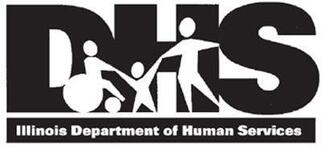Families |
How does monitoring support families?
The Early Intervention Technical Assistance and Monitoring Program supports families by ensuring the Early Intervention Services they receive are being delivered in compliance with applicable policies and procedures, and supports the continuous improvement of these services to ensure the needs of families are being met.
Investing in early childhood education is the single most important education policy decision a government can make, states Illinois Governor J.B. Pritzker. Monitoring not only fulfills the state’s legal obligations to ensure adequate oversight, it brings other benefits as well. Monitoring:
- helps ensure that expenditures are directed toward fulfilling the EI mission.
- enhances program fidelity, integrity, and effectiveness—and demonstrates to stakeholders a commitment to such.
- promotes technical assistance and professional learning to be tailored to programmatic needs identified during monitoring reviews.
- provides a direct means to communicate with EI providers working throughout the state.
|
Do you wonder if your child’s development is on target for her age? Most delays are nothing to worry about, but in some young children, delays can signal a special need. This guide is written for families with questions about their infant or toddler’s development.
|
Getting Started in Early Intervention
Click here to learn how to get stared in the Illinois Early Intervention Program.
Click here to learn how to get stared in the Illinois Early Intervention Program.
Resources
Early Intervention
For more information on the State's Early Intervention services please visit the following websites by clicking on their logos below.
Child and Family Connections
Child and Family Connections (CFC) are the regional intake agencies for children and families to enter the Illinois Early Intervention System. There are 25 CFCs located around the state, each being responsible for a specific geographic area. Here is a list of all CFCs located in the state with their contact information.
Request for Official Hearing
Request for Mediation
Family Satisfaction Survey
Principles of Early Intervention
The following principles guide the state's Early Intervention practices. All plans for service delivery are based upon the unique needs of each child/family and focus on the coordination of developmental activities to ensure that all members of the team involved in a child's intervention, including the family and/or caregiver, are working together.
|
Adopted by the Illinois Interagency Council on Early Intervention (IICEI) October 4, 2001.
Revised 07/2020, Revised 01/2021
Revised 07/2020, Revised 01/2021
|
For additional assistance, please contact us at:
|
|
Phone
217-461-4032 708-584-0367 |
Email
askamonitor@vanderweelegroup.com |
|
Certifications:
WOSB, WBENC, DBE, and WBE |
©2023 by Vander Weele Group
|
IL License Number:
IL 117.001231 / 118.000306 |



